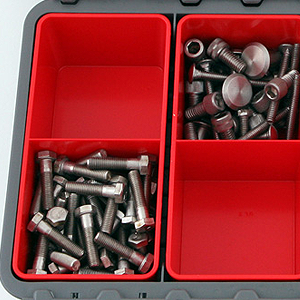Tooling Design and Contract Manufacturing: What is it all about?
17 October 2016
Under the context of injection moulding technology, a tooling design and contract manufacturing facility is responsible for an in-house manufacturing environment that incorporates a toolmaking department. Essentially, precision-fabricated tools are built according to the high tolerance needs of each undertaken project. The goal is to provide a contracted plastic moulding service that delivers true value, but anyone could spout such rhetoric. What’s needed here is deeper look, an engineering-oriented journey that delves down into the toolmaking discipline.
Proprietary Tools Build Better Products
Tooling design enables a concept-to-finishing product workflow to flourish. The design begins with pencil and paper, or it’s transferred to a three-dimensional CAD program, but its unique profile only jumps from paper or computer space when the right tools have been put in place. The mould and its gates are properly constructed thanks to the tooling stage, plus all complex geometrical profiles are properly accounted for, all thanks to an aptitude for fabricating tooling assets that are custom-built for the project.
Facilitating the Production Cycle
An able contract manufacturer in the plastic moulding sector is one that either competently outsources or expertly keeps every stage of the moulding process in-house. In the latter case, the initial prototype is conducted within the facility, as dictated by a short run production cycle. It’s exhaustively tested and passed through corrective iterations by a companionable customer to design team partnership that sees the tooling, moulds, and plastic medium refined until the part is approved for a full productivity run. At this point, the process is expedited by the contracted tooling design and contract manufacturing specialist. Again, if this department is located in-house, then the fabrication of the final product will likely conclude expeditiously.
Seamless Increasing Manufacturing Efficiency
At the end of the day, an effective plastic injection moulding facility succeeds when its resources are judiciously allocated. The expert knowledge of the design team and the factory floor technicians hold sway in this scenario, but those selfsame resources extend further. They’re the toolmaking competency rating of the facility, the moulding shop’s ability to manage urethanes and other engineering plastics. Simultaneously, the custom-manufactured tools enable a diversified range of products to be manufactured according to designs that are being refined elsewhere in the facility.
Conversely, and this is what underscores a truly invaluable tooling design and contract manufacturing service, the resources offered by an expert toolmaking service can be redirected so that they becomes available as an essential source of mould fabricating accessibility for other material-relevant engineering partners.
Optimized by NetwizardSEO.com.au

